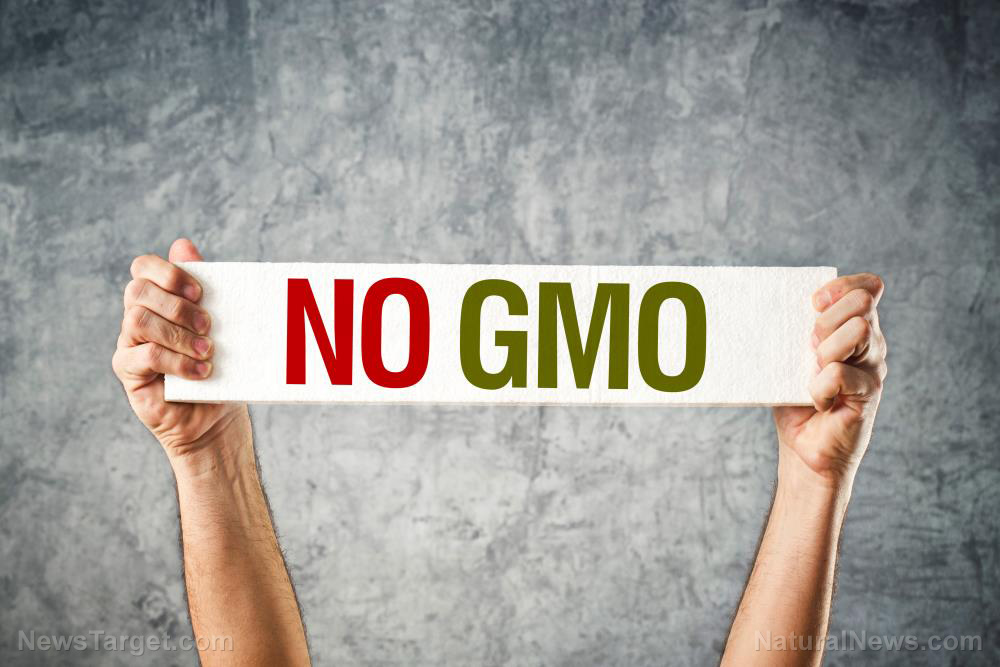
Case in point: Mission Tortillas. As pointed out by Dr. Sherri Tenpenny on X, this popular tortilla brand has gone out of its way to avoid disclosing the presence of GMOs. Only the most persistent consumers – those who actually take the time to scan the QR code on the package – would know that this food is actually bioengineered as that's the only place where this information is listed.
She shared a photo of the packaging of Mission Extra Thin Yellow Corn Tortillas on the social media platform. While the package boasts they are a good source of fiber and low in fat, it doesn’t say a word about them being GMO. This information does not appear in the nutrition facts listed for the product on their website, either.
In the FAQ section of their website, there is a question about whether Mission's products are GMO. The company’s reply states: “We manufacture both GMO and Non-GMO products. Effective January 1st 2022, all products containing bioengineered ingredients will be labeled as such, in accordance with the National Bioengineered Food Disclosure Law.”
However, it takes quite a bit of sleuthing to find out what you’re really eating when you buy these. They do have a few organic tortilla wrap products, like their Mission Organics White Corn Tortillas, but these proclaim their non-GMO status clearly on the package, featuring both USDA Organic and Non-GMO Project Verified labels front and center. So, unless their label specifically boasts being non-GMO, it is safe to assume that their products are, in fact, GMO.
Human knowledge is under attack! Governments and powerful corporations are using censorship to wipe out humanity's knowledge base about nutrition, herbs, self-reliance, natural immunity, food production, preparedness and much more. We are preserving human knowledge using AI technology while building the infrastructure of human freedom. Speak freely without censorship at the new decentralized, blockchain-power Brighteon.io. Explore our free, downloadable generative AI tools at Brighteon.AI. Support our efforts to build the infrastructure of human freedom by shopping at HealthRangerStore.com, featuring lab-tested, certified organic, non-GMO foods and nutritional solutions.
USDA lets companies disclose GMO food via QR code rather than on product labels
Corn, soy and oats are foods that are often GMO, so it is important to be especially vigilant when researching which foods to buy. However, with current USDA labeling regulations specifying that GMO status does not have to appear on the package and can be listed in digital QR codes instead, it is hard to know exactly what you’re getting. Not everyone uses a smartphone, and in some grocery stores, the signals tend to be weak, making it difficult for people to scan the codes and obtain meaningful information about the products while they are shopping.
In September, the Center for Food Safety filed a legal appeal against the USDA over its GMO labeling rules, which do not mandate clear GMO labeling on food product packages. This is how companies like Mission can get away with fooling customers who aren’t willing to take the extra steps needed to find out what is really in their food.
The move came after a 2022 district court ruling on a lawsuit filed by the group against the USDA that found the practice was unlawful. Despite this ruling, the court refused to vacate the USDA’s decision to allow the information to be accessible only via QR codes.
Consumers should also keep in mind that the USDA now allows food manufacturers to use the term “bioengineered” instead of the more widely understood term “GMO” in yet another effort to obscure the true composition of their foods.
Enforcement of GMO labeling is largely carried out by complaints; consumers may file complaints with the USDA if they think that a food manufacturer or retailer is failing to disclose a GMO food, and the agency will decide if it is worth investigating. This makes it even easier for food companies to avoid being up front with consumers.
Sources for this article include:
Please contact us for more information.






















